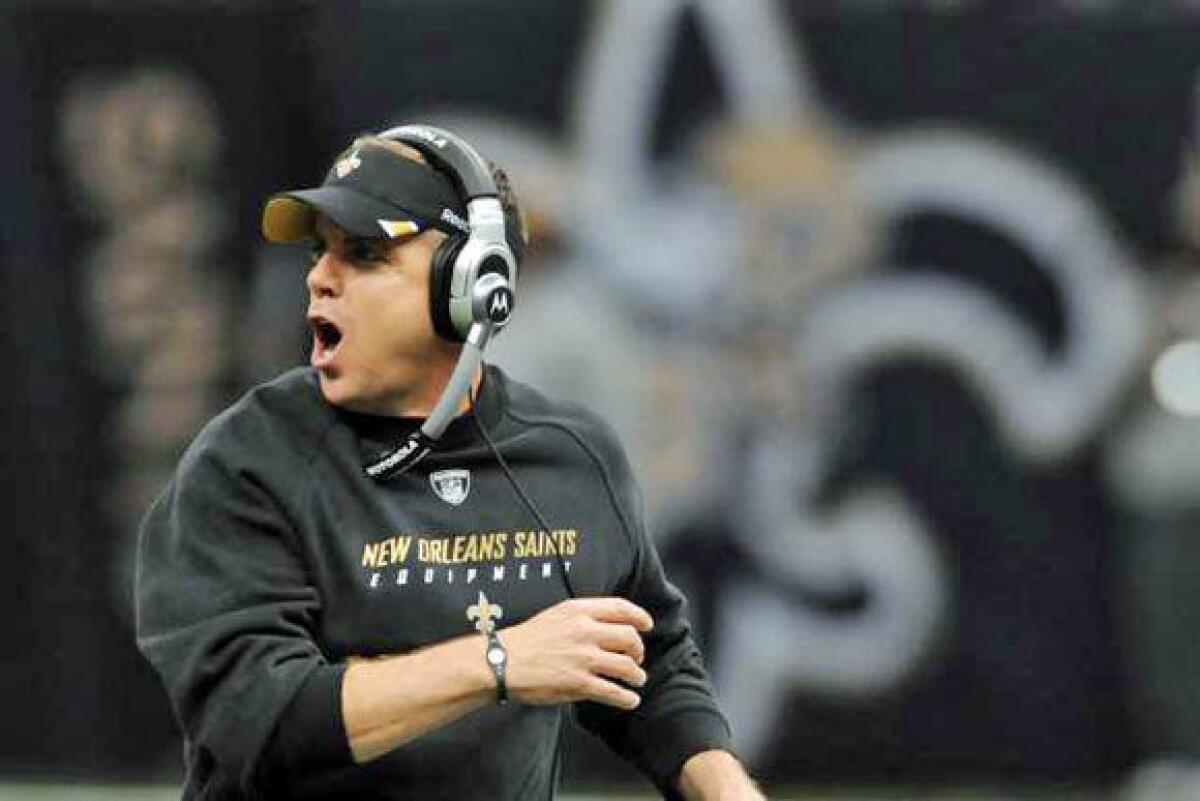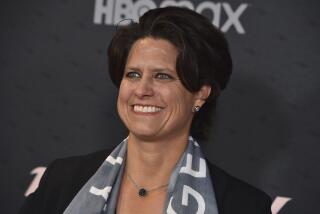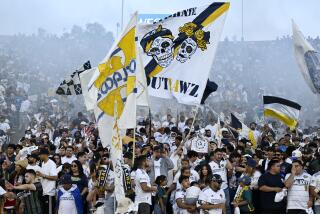Was the penalty against the Saints too tough, easy or just right?

- Share via
The NFL handed down a set of unprecedented penalties against the New Orleans Saints on Wednesday because of its bounty program, but were the penalties too tough, too light or just right?
Writers from around Tribune Co. will be discussing the penalties against the Saints. Check back throughout the day for their responses. And join the conversation by voting in the poll and leaving a comment of your own.
Sam Farmer, Los Angeles Times
Roger Goodell needed to send a resounding message, one that would ensure the whole concept of improper bounties would be a thing of the past, and this penalty -- although severe -- did just that. On top of concerns about player safety, the league has to take its business interests into consideration, and the potential liabilities of looking the other way when a coach/player/team so blatantly skirts the rules. In many respects, the Saints actually got off easy. After all, paying someone to intentionally inflict injury on another person goes far beyond the bounds of fair play and becomes a criminal enterprise. Had Gregg Williams, Sean Payton and Mickey Loomis stepped in and dismantled the bounty program when advised to do so by the league, these penalties would have been much different. Instead, they opted to keep it going, “get their ducks in a row” and lie about it. When Payton said he takes full responsibility, those are more than just words.
Dan Pompei, Chicago Tribune
Everyone understands the Saints needed to be punished, but the level of punishment meted out by Commissioner Roger Goodell was extremely harsh, shockingly harsh, you might even say. The key to punishment is it was about more than the bounty program. It also was about how the Saints deceived Goodell when he initially investigated the team. And it also was about the bigger picture. Goodell is intent on making NFL games safer. The idea of players trying to injure other players is completely unacceptable to him. The Saints’ bounty program provided an opportunity for Goodell to convey how serious he is about player safety. What happened Thursday is as much about changing the culture in the NFL as it is about teaching the Saints a lesson. And the culture has been changed. We have seen the end of NFL bounties.
Matt Vensel, Baltimore Sun
Though it was one of the harshest punishments the NFL has ever handed down, I’m not going to argue against the triple whammy of long suspensions, hefty fines and the loss of draft picks.
By installing a bounty system, ex-Saints defensive coordinator Gregg Williams and his players didn’t just disregard the health of their peers; they aimed to maim whenever the opportunity presented itself. And head coach Sean Payton, assistant Joe Vitt and general manager Mickey Loomis let it go on for years, and were uncooperative during the NFL’s initial investigation into the matter.
Here in Baltimore, I can’t help but think about the late and legendary Baltimore Colts tight end John Mackey, who was beset with dementia in the later years of his life. The Hall of Famer’s quality of living was compromised by all the hard hits to the head he absorbed from defenders.
Decades later, the Saints tried to knock out opponents with skull-rattling “kill shots” and other illegal hits — just for the sport of it. Kudos to Roger Goodell, who spoke at Mackey’s memorial service last August, for not showing restraint, either, when lowering the boom on the Saints.
Nick Fierro, Allentown Morning Call
The punishment was just right. If the NFL is truly serious about the safety of its players, the penalties applied to the New Orleans Saints and to former defensive coordinator Gregg Williams are appropriate. The only shame here is that they have become the examples because they were caught. If they were doing it, you had better believe pretty much everyone else was, too.
The bounty system has to stop. It’s barbaric and unnecessary in a sport that already features the most brutality this side of Ultimate Fighting. Even though it’s kind of like putting the death penalty in for jaywalking, the ends will more than justify the means here. Good call by the commish.
RELATED:
Warren Sapp says Jeremy Shockey snitched on Saints
Bill Plaschke: Tebow’s class act may not play in the NFL
NFL suspensions and the need to protect the integrity of the sport
Was the penalty against the Saints too tough, easy or just right?
More to Read
Go beyond the scoreboard
Get the latest on L.A.'s teams in the daily Sports Report newsletter.
You may occasionally receive promotional content from the Los Angeles Times.










